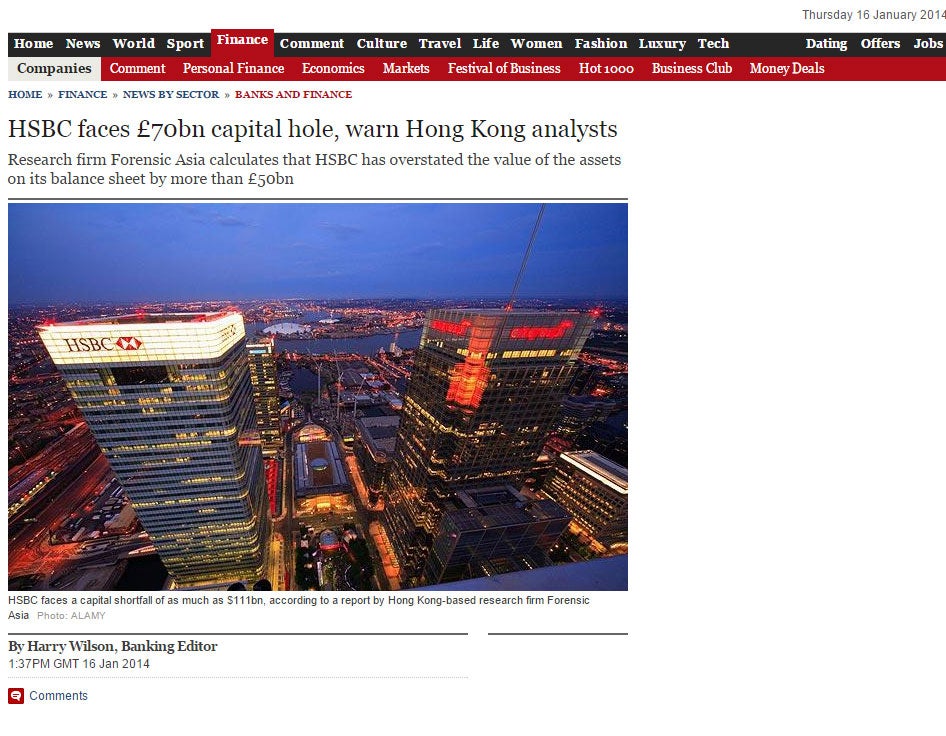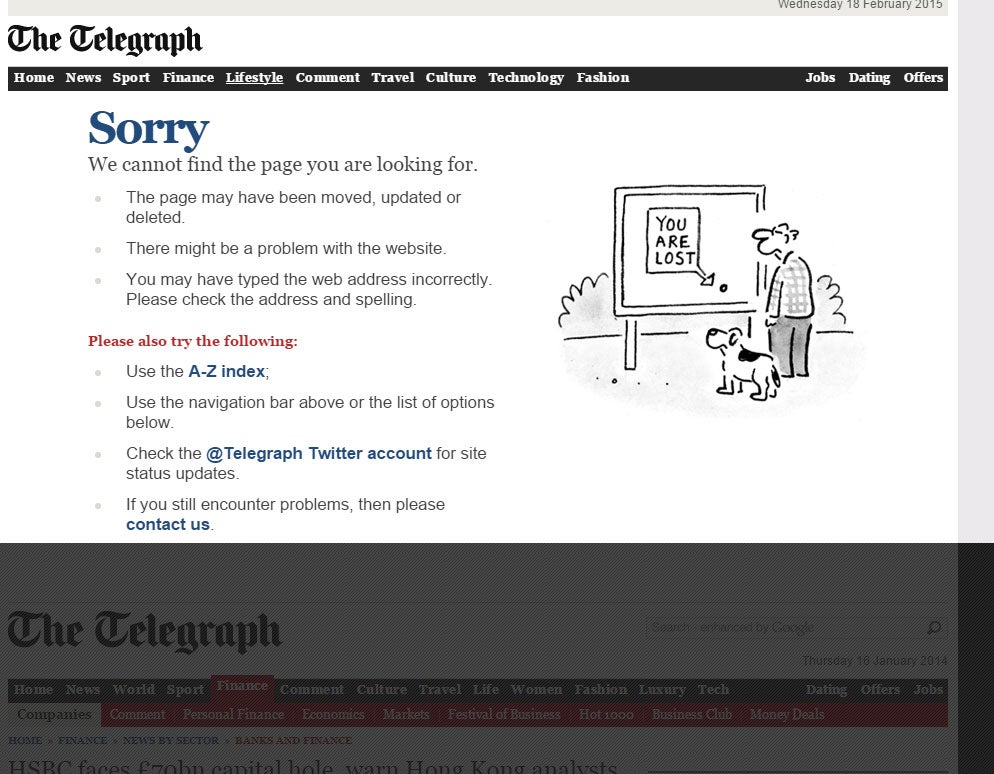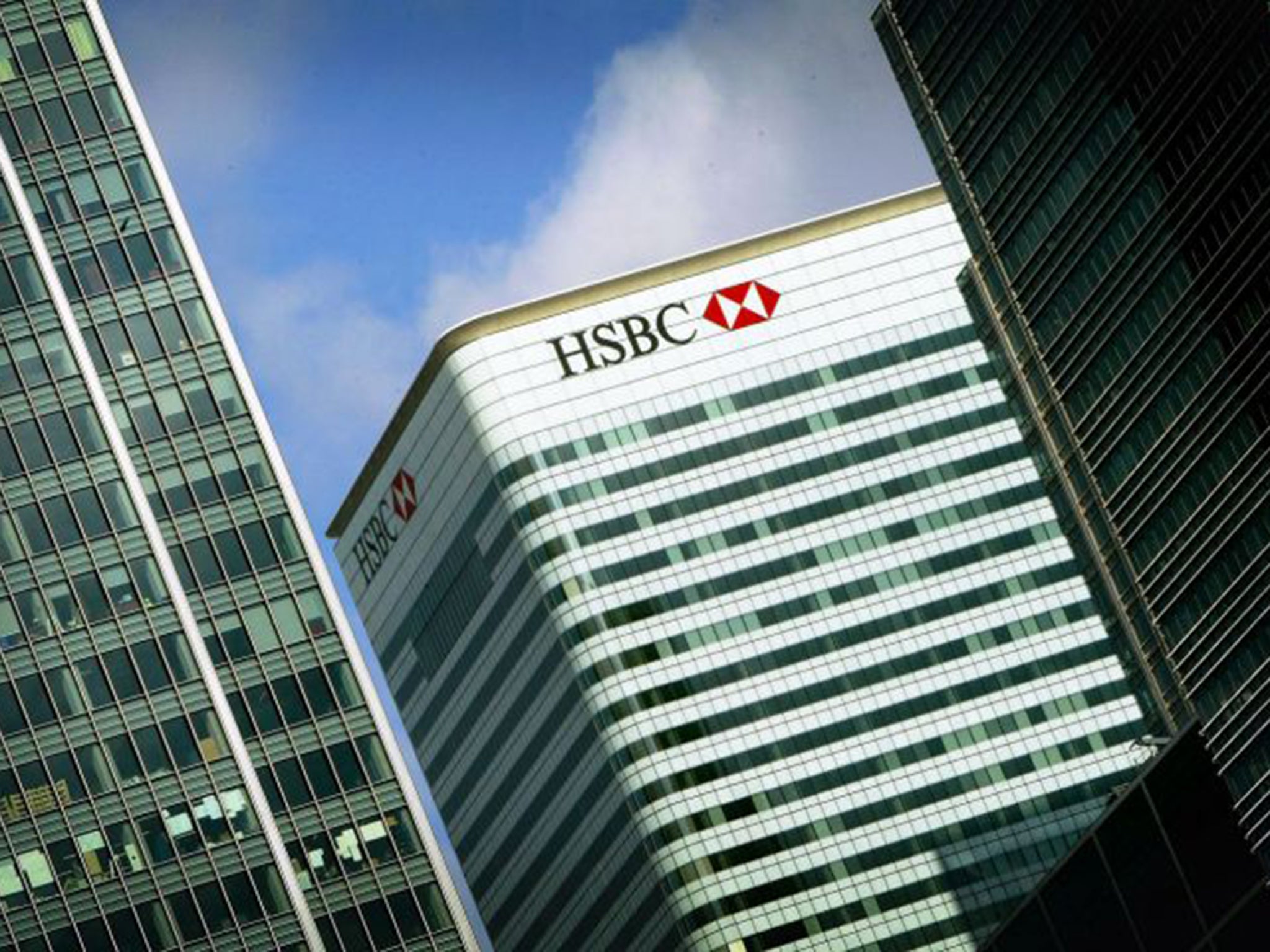Peter Oborne resignation: Senior writer quits Telegraph dramatically over HSBC allegations
Columnist accuses paper's owners of suppressing reportage for fear of losing advertising revenue
A senior writer at the Daily Telegraph has dramatically quit the newspaper after accusing its owners, the Barclay Brothers, of suppressing reports about the HSBC scandal out of fear of losing advertising revenue.
Peter Oborne, the paper’s chief political commentator and an award-winning author, announced his resignation in a blog on the openDemocracy website, in which he accused the Telegraph of committing a “fraud” on readers by burying reports on the HSBC tax scandal.
The journalist quoted a conversation with Murdoch MacLennan, chief executive of Telegraph Media Group, whom he said freely admitted that advertising was allowed to affect editorial at the paper.
Referring to the phone-hacking scandal which hit Rupert Murdoch’s newspapers, Oborne argued that democracy was being undermined by “shadowy” media executives “who determine what truths can and what truths can’t be conveyed” by news organisations.
Mr Oborne detailed a series of investigations about HSBC, and other financial scandals, which he said executives at the newspaper had closed down.
He declared that “democracy itself is in peril” if “major newspapers allow corporations to influence their content for fear of losing advertising revenue”.
He referred to the Telegraph's decision to delete one story - "HSBC faces £70bn capital hole, warn Hong Kong analysts" - from the paper's website which reported that the banking giant had "overstated the value of the assets on its balance sheet by more than £50bn".


The Telegraph called Mr Oborne’s attack “full of inaccuracy and innuendo”. The paper denied that its editorial judgements had ever been compromised by commercial imperatives.
Mr Oborne, an associate editor of The Spectator, who has presented investigations for Channel 4’s Dispatches, criticised his paper’s minimal coverage of the tax evasion scandal which engulfed HSBC and its Swiss banking arm.
He wrote: “You needed a microscope to find the Telegraph coverage: nothing on Monday, six slim paragraphs at the bottom left of page two on Tuesday, seven paragraphs deep in the business pages on Wednesday.
“The Telegraph’s recent coverage of HSBC amounts to a form of fraud on its readers. It has been placing what it perceives to be the interests of a major international bank above its duty to bring the news to Telegraph readers.”
The paper had made a sudden about turn after journalists pursued previous investigations into the bank. Mr Oborne wrote: “From the start of 2013 onwards stories critical of HSBC were discouraged. HSBC suspended its advertising with the Telegraph.
“Its account, I have been told by an extremely well informed insider, was extremely valuable. HSBC, as one former Telegraph executive told me, is ‘the advertiser you literally cannot afford to offend’.
“HSBC today refused to comment when I asked whether the bank's decision to stop advertising with the Telegraph was connected in any way with the paper's investigation into the Jersey accounts.
“Winning back the HSBC advertising account became an urgent priority. It was eventually restored after approximately 12 months. Executives say that Murdoch MacLennan was determined not to allow any criticism of the international bank.”
As a result of a 2012 investigation into accounts held by HSBC in Jersey, he claimed: “Reporters were ordered to destroy all emails, reports and documents related to the HSBC investigation. I have now learnt, in a remarkable departure from normal practice, that at this stage lawyers for the Barclay brothers became closely involved.”

Mr Oborne, who wrote regular columns for the paper on what he perceived to be a moral corruption at the heart of Britain’s political culture, accused his bosses of appeasing Chinese interests by refusing to publish critical comment after China barred British MPs from a visit to Hong Kong.
He argued: “An editorial operation that is clearly influenced by advertising is classic appeasement. Once a very powerful body knows they can exert influence they know they can come back and threaten you. It totally changes the relationship you have with them.”
A Telegraph spokesperson said: “Like any other business, we never comment on individual commercial relationships, but our policy is absolutely clear. We aim to provide all our commercial partners with a range of advertising solutions, but the distinction between advertising and our award-winning editorial operation has always been fundamental to our business. We utterly refute any allegation to the contrary.
“It is a matter of huge regret that Peter Oborne, for nearly five years a contributor to the Telegraph, should have launched such an astonishing and unfounded attack, full of inaccuracy and innuendo, on his own paper.”
The best of Oborne
- “The sackings continued. A little while later I met Mr MacLennan by chance in the queue of mourners outside Margaret Thatcher’s funeral and once again urged him not to take Telegraph readers for granted. He replied: “You don’t know what you are fucking talking about.”
- "With the collapse in standards has come a most sinister development. It has long been axiomatic in quality British journalism that the advertising department and editorial should be kept rigorously apart. There is a great deal of evidence that, at the Telegraph, this distinction has collapsed.
- “I was resigning as a matter of conscience. Mr MacLennan agreed that advertising was allowed to affect editorial, but was unapologetic, saying that “it was not as bad as all that” and adding that there was a long history of this sort of thing at the Telegraph.
- “The past few years have seen the rise of shadowy executives who determine what truths can and what truths can’t be conveyed across the mainstream media. The criminality of News International newspapers during the phone hacking years was a particularly grotesque example of this wholly malign phenomenon.”
Join our commenting forum
Join thought-provoking conversations, follow other Independent readers and see their replies
Comments
Bookmark popover
Removed from bookmarks